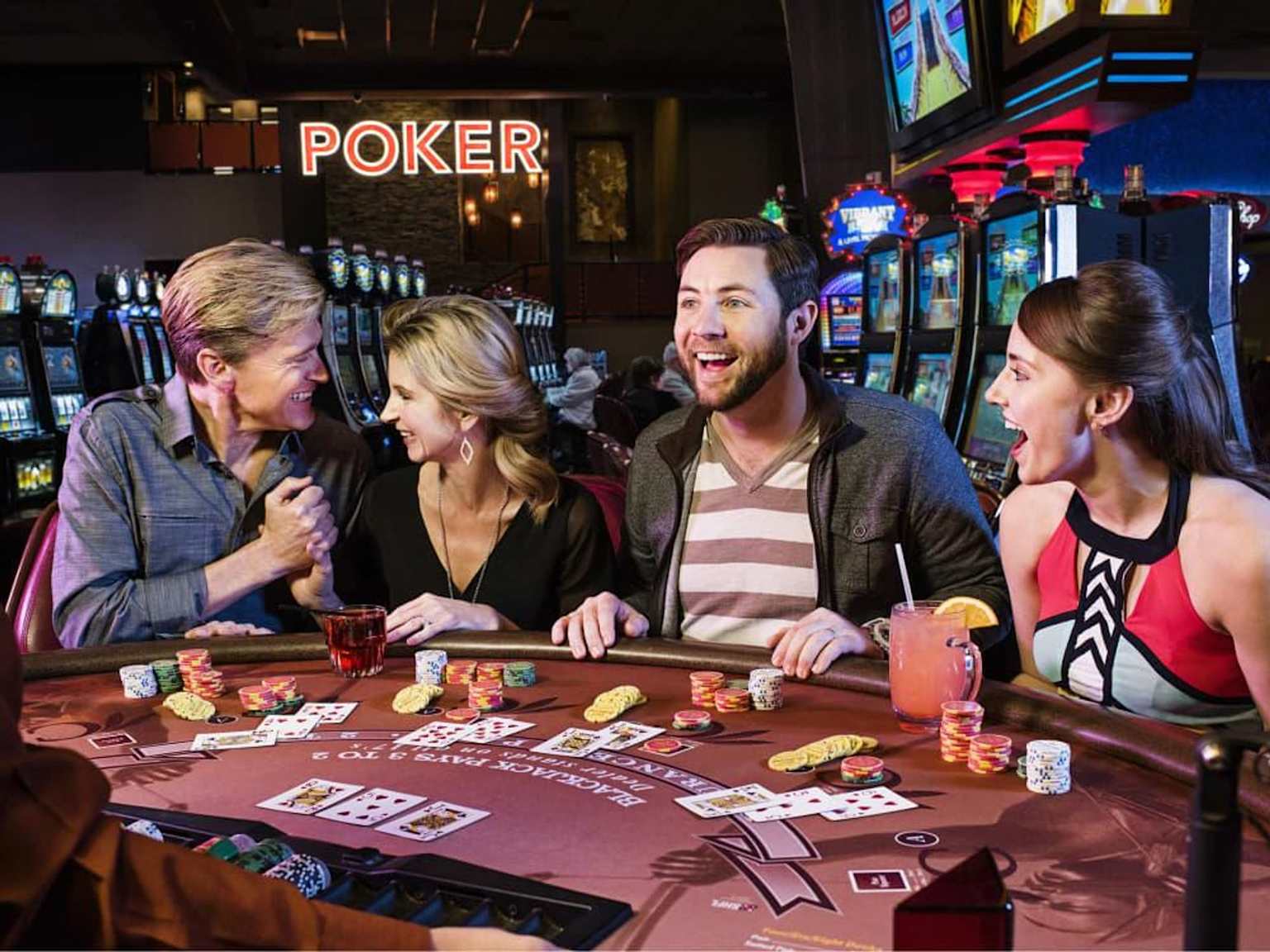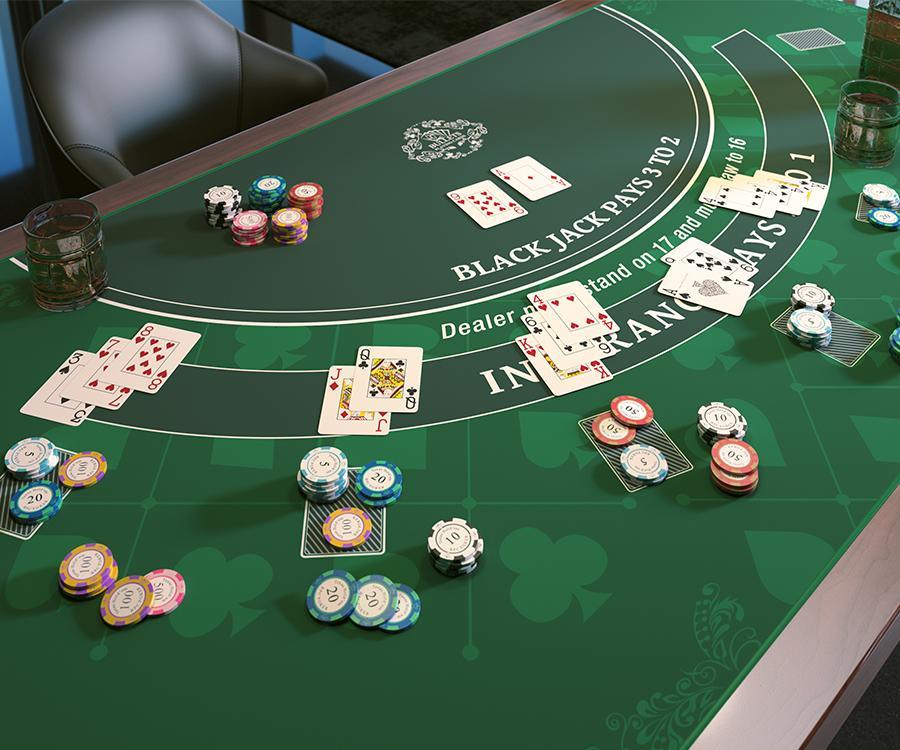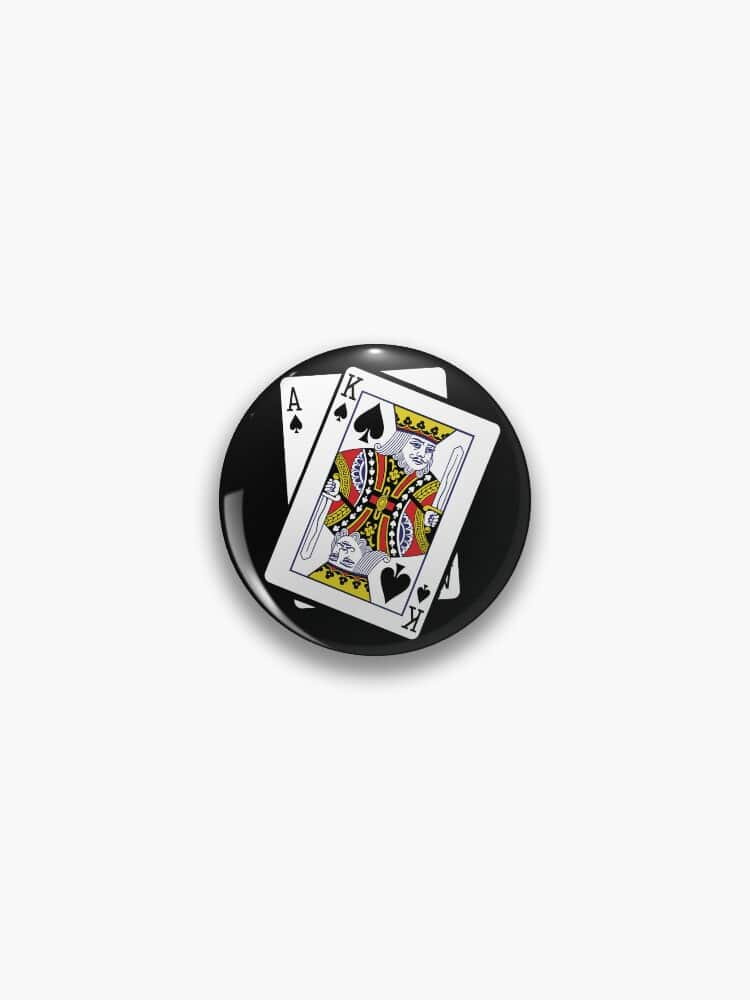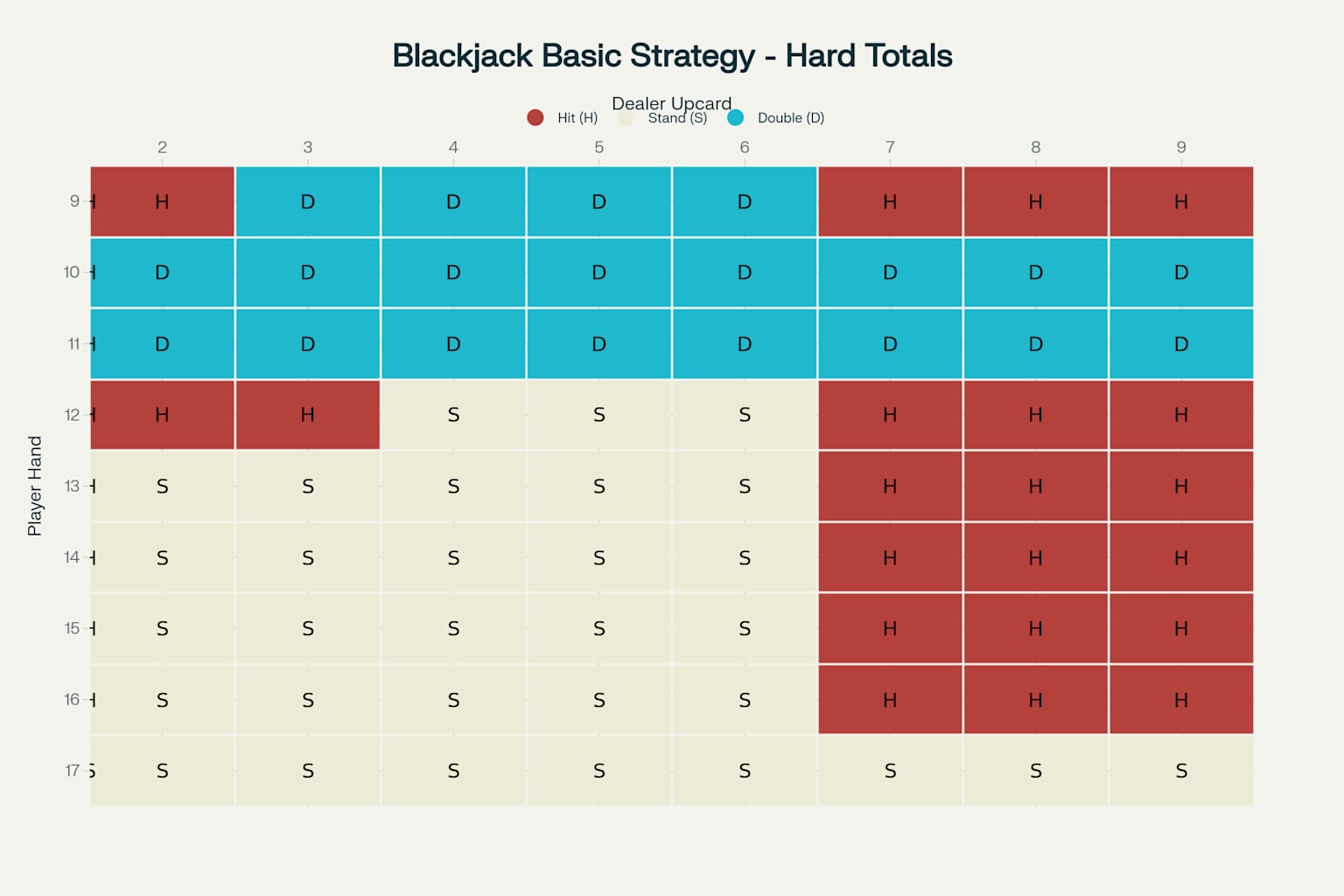How to Play Blackjack: A Complete Beginner's Guide

Blackjack is a popular card game played in casinos. It’s fun because it combines luck with smart choices. Here’s a longer, easy-to-read guide to help you learn how to play and enjoy the game.
What is Blackjack?
Blackjack, or “21,” is a game where you try to get your cards’ total value as close as possible to 21 without going over. If your cards total more than 21, you lose that hand. The game is played against the dealer, not against other players.
Card Values and Hand Calculations
Before playing, you must understand how cards are valued in blackjack:
Number Cards (2-10): These cards carry their face value. A 5 of hearts equals 5 points, a 10 of spades equals 10 points.
Face Cards (Jack, Queen, King): All face cards are worth 10 points, regardless of suit.
Aces: The most flexible cards in blackjack, Aces can be worth either 1 or 11 points, whichever benefits your hand more.

To calculate your hand total, simply add up the values of all your cards. For example: 7 + 5 = 12, King + 6 = 16 (10 + 6), Ace + 9 = 20 (11 + 9).
Hard Hands vs. Soft Hands
Understanding the difference between hard and soft hands is critical for making correct strategic decisions:
Soft Hands: Contains an Ace that can be counted as 11 without busting. Examples include Ace-6 (soft 17) or Ace-4-2 (soft 17). Soft hands provide flexibility since you can't bust by taking another card.
Hard Hands: Either contains no Aces or has Aces that must be counted as 1 to avoid busting. Examples include 10-7 (hard 17) or Ace-6-10 (hard 17, with Ace counted as 1).
Basic Gameplay Rules
A standard blackjack game follows these steps:
- Place Your Bet: Before cards are dealt, put some chips on the table.
- Get Your Cards: The dealer gives you two cards and also gets two cards for themselves. One of the dealer’s cards is face up.
- Play Your Hand: You can decide to:
- Hit: Ask for another card.
- Stand: Keep your hand as it is.
- Double Down: Double your bet and get only one more card.
- Split: If your two cards have the same value, you can split them into two hands. Then, play each hand separately.
- Dealer’s Turn: The dealer must follow the house rules. They must hit on 16 or less and stand on 17 or more.
- Win or Lose: If your hand is closer to 21 than the dealer’s, you win. If you go over 21, you lose. If the dealer goes over 21, they lose.

Player Options and Strategic Decisions
Players have several options when playing their hands:
Hit: Take another card to improve your hand total 57. Use this when your hand is weak and needs improvement.
Stand: Keep your current hand without taking additional cards 57. Choose this when you're satisfied with your total or risk busting.
Double Down: Double your original bet and receive exactly one more card. Best used with totals of 9, 10, or 11, or certain soft hands.
Split: When dealt two cards of equal value, you can split them into separate hands, placing an additional bet equal to your original wager 432.
Surrender: Some casinos allow players to forfeit half their bet and end the hand immediately. Use this option with very weak hands against strong dealer upcards.
Insurance: When the dealer shows an Ace, players can make a side bet that the dealer has blackjack. This bet typically isn't recommended for basic strategy players.
Dealer Rules and Fixed Strategy
Dealers must follow strict rules with no decision-making flexibility:
- Must hit on any hand totaling 16 or less
- Must stand on any hand totaling 17 or more
- In some games, dealers hit "soft 17" (Ace-6), while others require standing
These fixed rules give players a strategic advantage since you can predict dealer actions based on their upcard.

An Ace and King of Spades, a 'blackjack' or 'natural 21' redbubble
Basic Strategy Fundamentals
Basic strategy represents the mathematically optimal way to play every possible hand combination. Following these guidelines reduces the house edge to approximately 0.5%:
Hard Totals 8 or Less: Always hit
Hard Totals 9: Double against dealer's 3-6, otherwise hit
Hard Totals 10: Double against dealer's 2-9, otherwise hit
Hard Totals 11: Double against dealer's 2-10, hit against Ace
Hard Totals 12: Hit against dealer's 2-3 and 7-Ace, stand against 4-6
Hard Totals 13-16: Stand against dealer's 2-6, hit against 7-Ace
Hard Totals 17-21: Always stand

Basic Strategy Chart for Hard Totals - Essential blackjack decision guide
Soft Totals: Generally, more aggressive, often hitting or doubling when you might stand with hard totals.
Pairs: Always split Aces and 8s, never split 5s or 10s. Other pairs depend on dealer's upcard.

Popular Blackjack Variations
Different blackjack variants offer unique rules and strategies:
American Blackjack: The dealer receives two cards initially, checking for blackjack if showing an Ace or 10. Typically uses 6-8 decks with more liberal splitting rules.
European Blackjack: The dealer takes their second card only after players completes their hands. Usually played with two decks, offering slightly different strategic considerations.
Spanish 21: Uses a 48-card deck (10s removed) but compensates with player-friendly rules like late surrender and bonus payouts for certain hands.
Common Beginner Mistakes to Avoid
New players often make these costly errors:
Taking Insurance: This side bet carries a high house edge and should generally be avoided unless you're counting cards.
Playing Hunches: Ignore "gut feelings" and stick to basic strategy for optimal results.
Standing on Soft 18: Against dealer's 9, 10, or Ace, hitting soft 18 is often the correct play.
Splitting 10s: While tempting when dealer shows a weak card, this breaks up a strong hand unnecessarily.
Not Doubling with 11: Failing to double down with 11 against most dealer upcards wastes profitable opportunities.
Online vs. Live Blackjack
Both formats offer distinct advantages:
Online Blackjack: Lower minimum bets (often $1 or less), faster gameplay, better rules (3:2 payouts), and practice modes available.
Live Casino Blackjack: Social interaction with dealers and players, traditional casino atmosphere, and more game variations available.
Bankroll Management Strategies
Proper money management protects your gambling funds:
- Set aside only money you can afford to lose
- Determine appropriate bet sizes (typically 1-2% of total bankroll per hand)
- Set win and loss limits before playing
- Take breaks to avoid emotional decision-making
- Track your results to analyze performance
House Edge and Odds
The house edge varies based on rules and your play quality:
- Perfect basic strategy: approximately 0.5% house edge
- Poor play: house edge can exceed 2-4%
- Rule variations affect the edge significantly
- 6:5 blackjack payouts increase house edge substantially
Your chances of winning individual hands are approximately 42%, with the dealer winning 49% and pushes accounting for 9%.
Blackjack Etiquette and Table Manners
Proper casino etiquette improves everyone's experience:
- Never touch your cards in face-up games
- Use hand signals rather than verbal commands
- Don't touch your bet after cards are dealt
- Be respectful to dealers and other players
- Tip dealers appropriately for good service
Practice and Skill Development
Improving your blackjack skills requires consistent practice:
- Use basic strategy charts until memorized
- Practice with free online games
- Start with low stakes when playing for money
- Focus on one decision type at a time
- Keep detailed records of your sessions
Blackjack provides some of the best odds in the casino for players willing to learn proper strategy. By learning card values, basic strategy, and proper bankroll management, you can significantly improve your chances of success. Remember that even with perfect play, blackjack involves variance, so approach the game with realistic expectations and never gamble more than you can afford to lose.
Comments ()